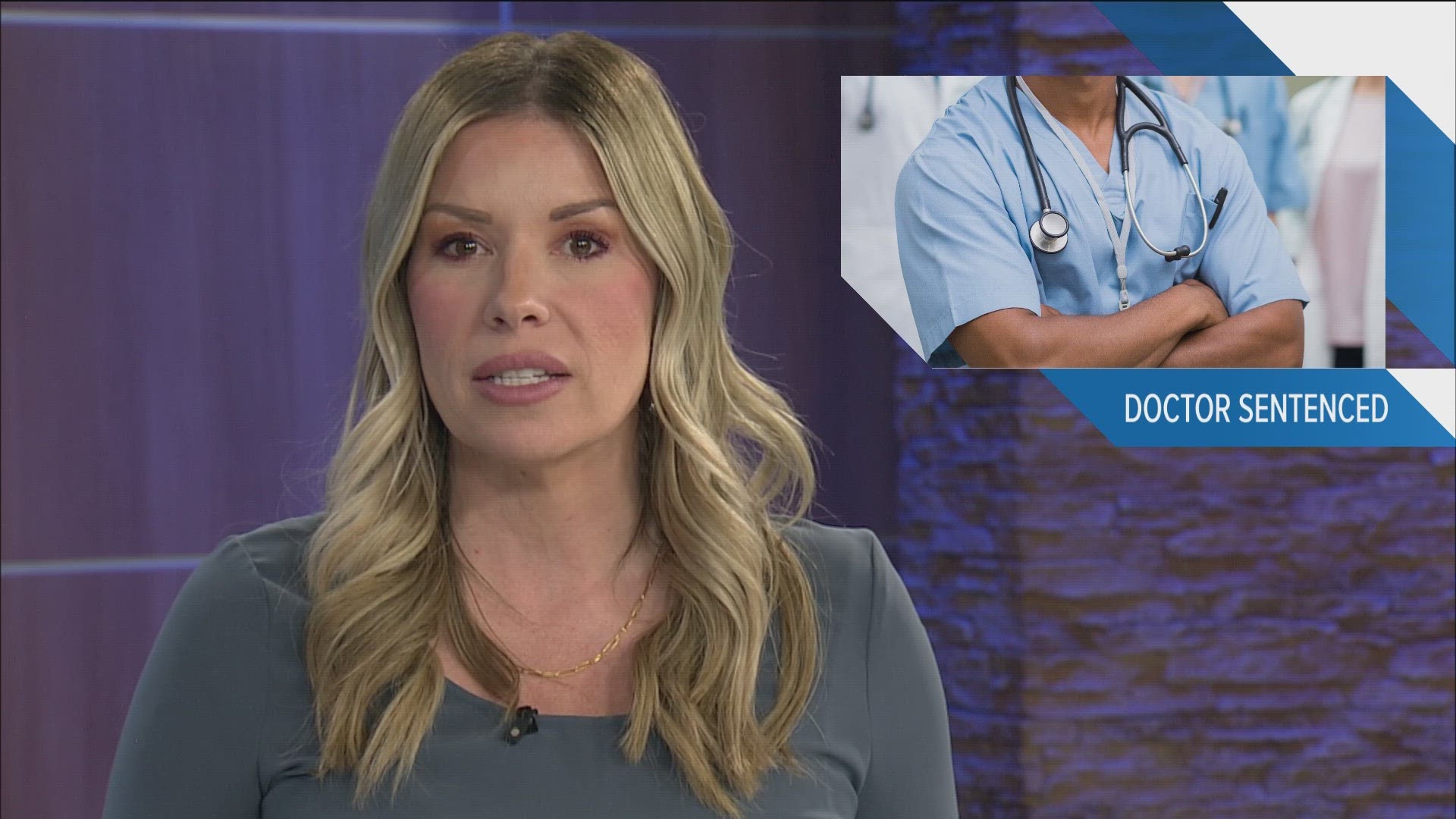SANDUSKY, Ohio — Following a civil complaint filed in August 2018, a federal court has prohibited a northwest Ohio doctor from prescribing patients opioids or other controlled substances and ordered him to pay $4.7 million in a case that involved allegations of violating both the Controlled Substances Act and the False Claims Act.
Dr. Gregory Gerber, 59, of Port Clinton, who had a medical office in Sandusky, was accused of unlawfully issuing prescriptions for opioids and other controlled drugs without a medical reason.
The civil complaint said that one patient died from an overdose of fentanyl patches prescribed by Gerber and that Gerber received kickback payments from a drug manufacturer. These kickbacks were described as part of a scheme to unlawfully prescribe the drug Subsys, which is an opioid containing fentanyl.
RELATED: No, you can’t smell fentanyl
Gerber agreed to a consent judgment to settle the allegations in the civil complaint. The court then permanently prohibited Gerber from prescribing opioids or other controlled substances, permanently prohibits him from managing, owning or controlling any entity that dispenses controlled substances and requires him to pay approximately $4.7 million under the FCA. U.S. District Judge Jeffrey J. Helmick entered the judgment and permanent injunction in U.S. District Court for the Northern District of Ohio.
“Dr. Gerber betrayed the trust placed in him and willfully violated his oath to protect the public and the provisions of the Controlled Substance Act,” said Special Agent in Charge Orville O. Greene of the Drug Enforcement Administration (DEA)’s Detroit Field Division. “His reckless behavior contributed to the opioid crisis gripping the nation and brought suffering to many communities in northern Ohio. This ruling will hopefully deter other medical practitioners who are inclined to put profit over patient health and safety.”
In a related criminal case brought by the U.S. Attorney's Office for the Northern District of Ohio, Gerber was sentenced in March to 42 months in prison and a year of home confinement. He was also ordered to pay a $100 special assessment and $861,892.13 in restitution. Gerber had previously pleaded guilty to the charge of illegally dispensing narcotics to patients.
The DEA, FBI, HHS-OIG, Ohio Attorney General’s Medicaid Fraud Control Unit, State of Ohio Board of Pharmacy and State Medical Board of Ohio investigated the case.
“All doctors must follow the law when prescribing opioids — their patients, and the public more generally, rely on such compliance,” said U.S. Attorney Rebecca C. Lutzko for the Northern District of Ohio. “Gerber’s patients trusted him. But instead of safeguarding that trust, Gerber accepted payments from a drug company in exchange for prescribing dangerous, addictive drugs and wrote thousands of prescriptions that were not for a legitimate medical purpose. Our office will use all available tools — civil and criminal — to fight the opioid epidemic and protect patients and their families so that doctors like Gerber do not profit from abusing our healthcare system.”

